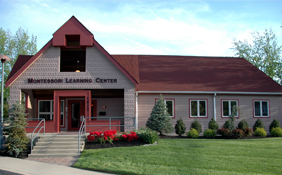Miss Neicy’s Thoughts on this Poem
I believe this poem by Judith Viorst poignantly expresses how the child might feel about the arrival of a sibling. The emotions that the child may experience range from joy to jealousy. Even within this range of emotions, the child may flip- flop back and forth between these emotions. The child’s acceptance of his new sibling will depend largely upon the child’s age, how dependent he is on the parent(s), and his emotional maturity. There are also other circumstantial factors which will affect the child’s acceptance of his sibling. However, whatever situation or circumstances are present, it is very important to plan how the child will be told, what type of involvement he will have with the sibling, and what types of assurances will be given to the child so he will understand his importance to and place in the family.
Preparing for the arrival of a newborn is a very exciting time for parents. It can also be overwhelming. One can imagine how a child might feel during this time. Parents can help in the adjustment that their child will be making by making him a part of this special event as soon as possible. The child’s age would dictate the manner of involvement for the child. For instance, a two year old could be told five months into the pregnancy. However, this would change if the child became aware of the change in the mother’s physical status. Parents should not wait too long to tell the child, especially if relatives and friends have already been informed. Some parents may feel a pregnancy is such a long period and may decide it best to wait to tell the child closer to the due date. This may not be the best decision for the child because the boredom of waiting a long time for the baby to come is not as bad for the child as is the feeling that something strange and secret is going on. If the decision is made to tell the child in advance, the parents should offer informed and realistic expectations about the newborn. He should be given age appropriate information about conception and pregnancy. This will help him understand how the baby is related to him.
Another helpful suggestion would be to provide situations that would allow the child to be around babies. For example, babysitting for a friend with a baby would present a great opportunity for the child. It would enable him to see how babies look, act, and what type of care they need. Exposing the child to a baby can be a rewarding and educational experience for both parent and child. The child can get a realistic understanding of the baby while parents get a general idea of what it would be like to have two children.
Parents can also help the child by talking about life with a new baby in a positive way. It is important to be careful of things said that are meant to be positive but may be viewed in a negative way by the child. Parents should not, for example, tell the child how he will feel and how much fun he is going to have with the baby. It may only serve to irritate the child or set him up for conflict if he doesn’t feel the way you predicted. You want the child to know he will be a “big brother or sister” instead of “you’re going to have a baby brother or sister”. Don’t promise that things will be the same after the baby arrives. It is much better to assure the child that you will always love him.
It would be a good idea to set aside special time for him before and after the baby arrives. He will need your attention to discuss his feelings about the baby and other things that are happening in his life. However, parents must remember not to go overboard in showering too much attention and gifts on the sibling. Excessive attention, both before and after the baby arrives, may create unrealistic expectations on the amount of time you will be able to spend with him and, too many gifts and treats before or after the birth, can send a guilt-laden message to the child.
Another great way to help the child is to take out his baby pictures and look at them with him. Discuss how he looked then and now and what he could do then and what he can do now. Any type of dialogue would be helpful. It is also very important always to provide an opportunity for the child to express his feelings, negative or positive.
The day the baby comes home is a very emotional, exciting time. During this time it is important to try to pay special attention to him for at least a few minutes when you arrive. It is up to both parents to always reassure the child that he is still loved. Other ways would be to include him when you’re taking pictures of the baby. Take some pictures with him and the baby and some pictures of him alone.
Each parent must find what works and does not when helping your child adjust to a new baby. What worked for the first child may not work for the second. I like to think of each relationship within a family as a jigsaw puzzle. One piece fits one way on one side, eventually connecting all the other pieces together to make a picture. It is the same with the child. He responds to Mom and Dad one way and to “big brother or big sister” in another way. As parents we must be most watchful in our relationships with the child because he is quite sensitive more than we know to external influences. It is primarily up to the parents to provide the proper environment to allow for these relationships to develop ultimately making a picture, “The Family.”
Enjoy every moment!
Miss Neicy


